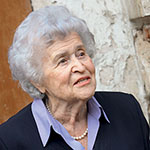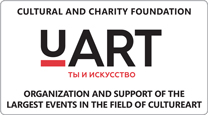Iveta Manasherova: «If you have the opportunity to do something, you should»
The VP of the Unident Group of
companies, founder of the U-Art Foundation, philanthropist and collector shares
her experience of creating cultural projects, her understanding of help, and
her thoughts on how to keep doing the right thing.
|
At the Vivarte festival press conference |
I.M.: I think that even more people would have been involved in charity – including those in big business – if the arts patronage law in our country were more effective*. For instance, the U. S. has a huge number of museums based on private collections, because they have a working system of incentives through tax deductions and benefits. In our country, no measures in support of patronage have yet been developed; in fact, an individual or company providing free aid to museums, educational or research institutions in the culture sector is not encouraged in any way and left to act purely «for art’s sake.»
Y.G.: So any big business that deals with philanthropy does that without support
I.M.: Yes. Everything depends on the good will of the entrepreneurs only. Open a catalog of any large exhibition, and on the first page you will see that its sponsor is a state corporation or a large bank.
Y.G.: And that means art patrons in Russia do not enjoy the tax status similar to what they have, for example, in the United States
I.M.: Correct. And this reflects on everything. Any museum abroad has on display the names of those who have contributed to its development. No matter if that was a hundred or twenty years ago or yesterday – the names remain. In our country the situation is slowly changing in the same direction, and now at the Pushkin Museum visitors already can see the names of the people who have helped it. For example, the current members of the board. But I have never seen any names of donors of 20 or 30 years ago in Russian museums
Y.G.: What does a name plaque mean for the patron?
I.M.: Status, I guess. Or maybe not that: an acknowledgment of one’s actions, recognition of their significance.
Y.G.: A mark of respect?
I.M.: Respect too, but this is not the only feedback you can get. Usually patrons don’t expect any special thanks. What matters is the impact, the general attitude that you feel among the public after, say, a concert organized by our foundation or at the opening of an exhibition. Emotions matter. And, of course, it's nice to see the result, feel it, hear it or hold it in your hands – a published book, for example. That is why we have educational projects, music, art, publishing. All kinds of projects, joint, standalone…
|
…Usually patrons don’t expect any special thanks. What matters is the impact, the general attitude that you feel among the public after, say, a concert organized by our foundation…
|
Y.G.: And the people who visit them – are there also all kinds of them?
I.M.: Well, let’s say, music festivals are set up so that
listeners with different preferences could find something to their taste: there
is jazz, classical, and theatrical projects. When a concert is held at a
museum, people interested in painting learn something about music, and vice
versa. We invite performers from all over the world to our festivals. Also, for
each Vivacello festival
I recall the Georgian
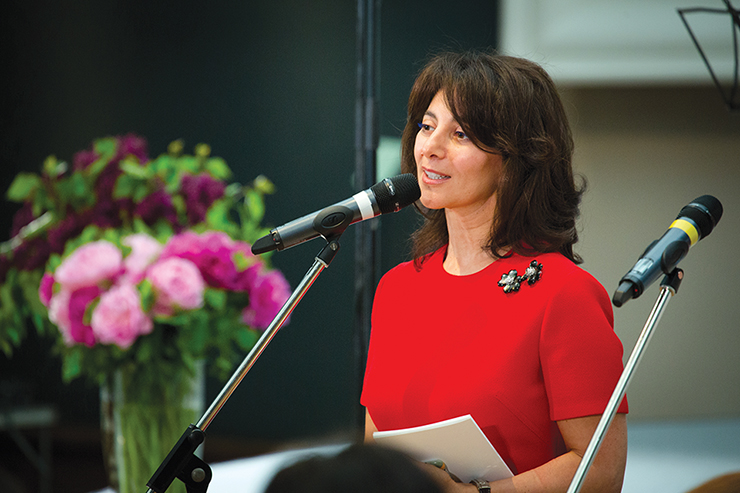
Y.G.: As you say, if you can do more, you have to do more.
I.M.: That’s right. We all help children and the seriously ill more readily and easily, without thinking. Helping those in need is natural and always the right thing to do. Well and good, but who will create connections between institutions, between people? Take classical music – it could have never existed by itself, it is a subsidized art. Someone must support it, otherwise your children will know only popular music. Let me give you an example related to childhood and to cultural roots. We were traveling with friends in Georgia, and someone told us that the organ in the Tbilisi Conservatory was broken and had not been in use for fifteen years. It was one of those moments when we, without thinking, just looked at each other and said, «Let's fix it.» My husband and I grew up in Tbilisi, so plenty of things connect us to Georgia, while our companions had no ties with it. But there was the will, and we found a way and did everything together. German experts came from the city where the organ was built in, and a year later it was working again. Immediately students showed up, a new organ class. And people were asking if we would come again to Georgia. As it turned out, we did, although didn’t have the opportunity to drop by the conservatory. But knowing that you did the right thing, gave some people jobs, other a chance to study, still others the pleasure of music – that is invaluable. My husband likes to recall one piece of advice a rabbi gave him: no matter how much you earn, be ready to give ten percent to charity. If you have the opportunity to do something, you should.
|
…If someone expresses gratitude, that’s great. If not, it’s no big deal…
|
Y.G.: What for?
I.M.: So that you can look the world in the eye. For
yourself. Probably everything that we do in our lives we first of all do for
ourselves anyway.
Y.G.: How do you choose a project?
I.M.: Sometimes it’s an emotional call. Take Vivacello again
– we met Boris Andrianov, the author of the concept, on the airplane, and he
said there was no cello music festival in Russia, what with the Russian cello
school being very strong and known all over the world. We talked a bit and it
turned out that the same thought occurred to everyone at the same moment: why
don’t we? Or another example:
Y.G.: Now it becomes clear why you are speaking on your own
behalf instead of on behalf of the company when it comes to charity. Is this
something you do on impulse
|
Business or culture, the Manasherovs manage all projects as a team |
I.M.: I grew up in a big family, and for us family is most
important. Helping one another, being one team, knowing
Y.G.: Nevertheless – how can you keep faith in the cause if you receive no gratitude?
I.M.: If someone expresses gratitude – that’s great. If not, it’s no big deal. In either case you don’t need to change – you just need to go on with your life. I’ll say it again: whatever we do, we do first of all for ourselves and for our loved ones.
Y.G.: At the beginning of this conversation you talked about the exhibition halls with donor name plaques. Is it important for you to have such a sign with your family name one day?
I.M.: Yes.
Y.G.: But why? You will not even see it.
I.M.: I will
not. But probably everyone would like to leave something
behind…
Interview by Yulia Gutova
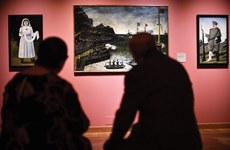
Georgian avant-garde exhibition, Pirosmani room |
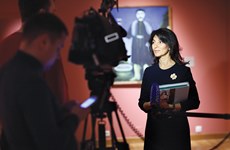
As a curator at the exhibition of Georgian art |
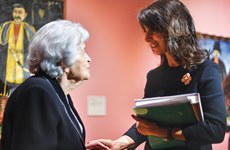
With Irina Antonova at at the Pushkin Museum of Fine Arts during the Georgian avant-garde exhibition |
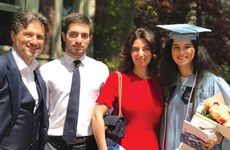
With husband Tamaz and children Aleksandr and Dina |
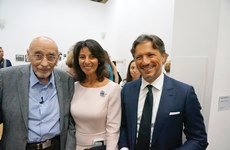
With artist Oscar Rabin |

Often new ideas come inspired by traveling and vivid impressions |
The Museum of Private Collections as part of the Pushkin Museum of Fine Arts was established in 1985 thanks to Antonova and the collector Ilya Zilberstein, and the museum’s holdings have been compiled with her direct participation.
Back




